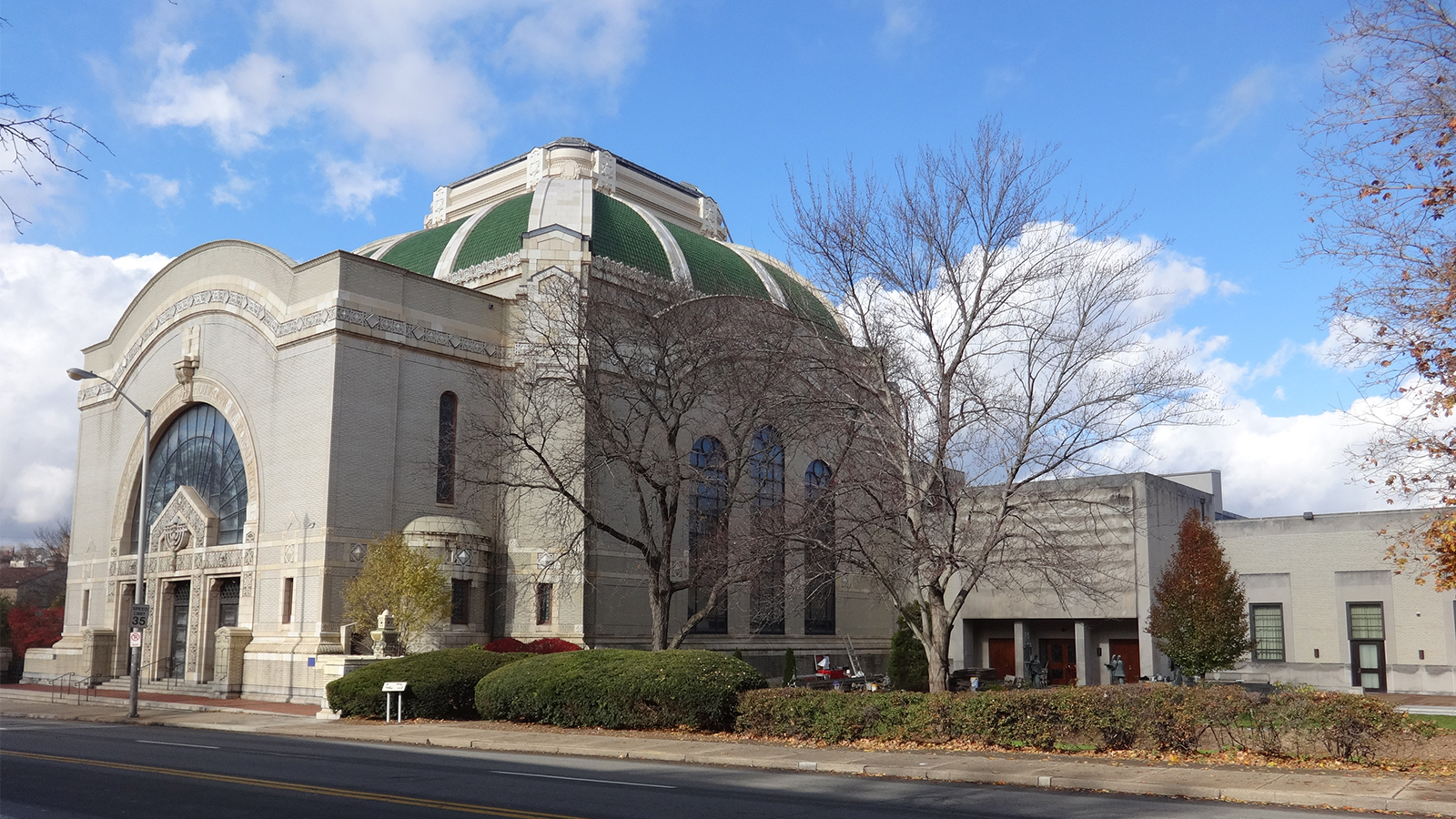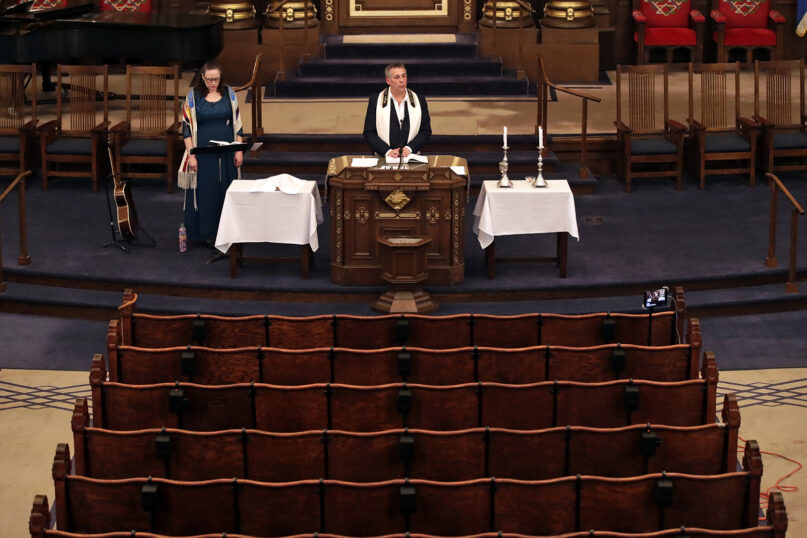(RNS) — The board of trustees of a historic Reform congregation in Pittsburgh, Pennsylvania, has decided not to renew the contract of its senior rabbi following an independent investigation into allegations he created a hostile work environment.
Rodef Shalom Congregation placed Rabbi Aaron Bisno on administrative leave in late November after employees complained about his conduct. He had been leading the venerable 166-year-old congregation, Pittsburgh’s largest Reform synagogue, since 2004.
The congregation is one of at least three that have undertaken independent investigations of its rabbis for workplace misconduct. In Minneapolis, Rabbi Michael Adam Latz resigned in the wake of an investigation into “long-standing, significant issues with his interactions with staff.” In Chicago, Rabbi Seth Limmer was allowed to return to the pulpit of Chicago Sinai Congregation following the conclusion of an investigation into a workplace culture that was discriminatory and disrespectful. The results of the investigation were not made public.
RELATED: After #MeToo, hostile workplace complaints prompt synagogues to investigate rabbis
In an email Monday (March 7) to members of Rodef Shalom, the board wrote that efforts to amicably resolve the conflict with the rabbi were not successful.
“At this point, those efforts have failed to yield the cooperation we had hoped for,” the email said. “Moreover, after our last communication to you on February 11, we were informed through Rabbi Bisno’s new legal counsel that he plans to sue the Congregation’s Board of Trustees and individual Trustees for defamation.”
Board Chair Matthew Falcone was not immediately available to respond.

Rodef Shalom Congregation in Pittsburgh. Photo by Bohemian Baltimore/Wikimedia/Creative Commons
In all, these investigations represent a new level of ethical accountability for rabbis in the wake of a #MeToo wave in the Reform movement, which examined the denomination’s response to sexual misconduct among clergy and staff. The new round of synagogue investigations do not involve sexual or financial misconduct but appear to follow a new level of awareness of workplace misconduct.
The Reform movement is the largest U.S. Jewish denomination, with some 831 affiliating congregations.
Under federal law, a hostile workplace is one with discriminatory and unwelcome conduct directed at an individual or a group because of his, her or their protected status, be it race, age, sexual orientation, gender, disability, religion or marital status, explained Fran Sepler, a human resources consultant who has long focused on respectful workplaces.
On top of federal laws, the Reform movement’s Central Conference of American Rabbis has its own code of ethics. Regarding workplaces, the document says, “We recognize that practices such as bullying or harassing, intimidation, and overly aggressive behavior toward another person destroy our moral integrity and are inappropriate.”
In its email to members, the board of Rodef Shalom said it would immediately begin a national search for an interim rabbi. In the meantime, it tried to head off further clarifications about the rabbi’s departure.
“Although some congregants have requested more details about what has transpired, we want to reiterate that the Congregation is bound to protect the confidentiality of employees who raised complaints,” the email said. “Now the threat of litigation further limits our communication with the Congregation.”
UPDATE: In June, Rodef Shalom’s board of trustees announced that following mediation it has agreed to welcome Bisno back to a new role, as the Frances F. and David R. Levin Rabbinic Scholar. “Rabbi Bisno is no longer serving as Rodef Shalom’s Senior Rabbi, but this new role allows Rabbi Bisno to continue to support our congregation in a meaningful and purposeful way,” said Bill Battistone, chair of the board, in a statement to RNS. “This agreement and new position satisfies the needs of both parties.”
RELATED: Reform movement publishes extensive report on sexual misconduct in its youth programs





